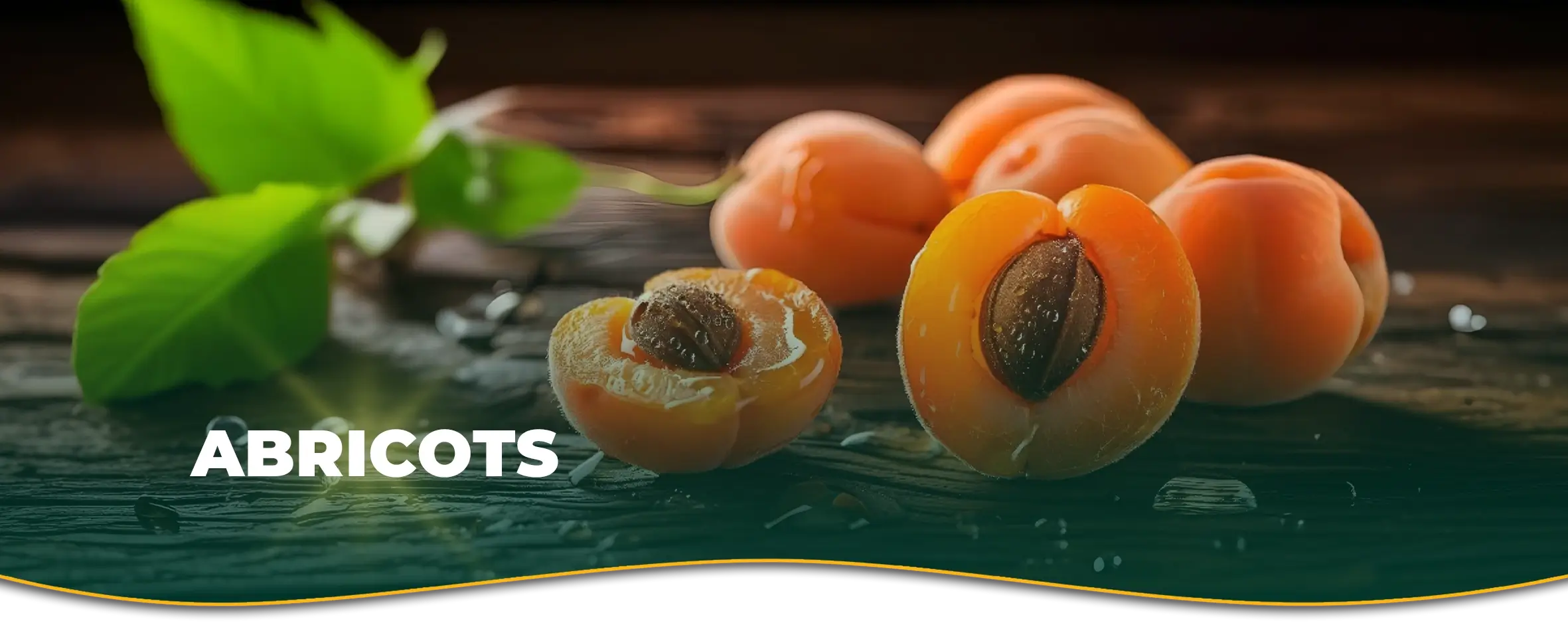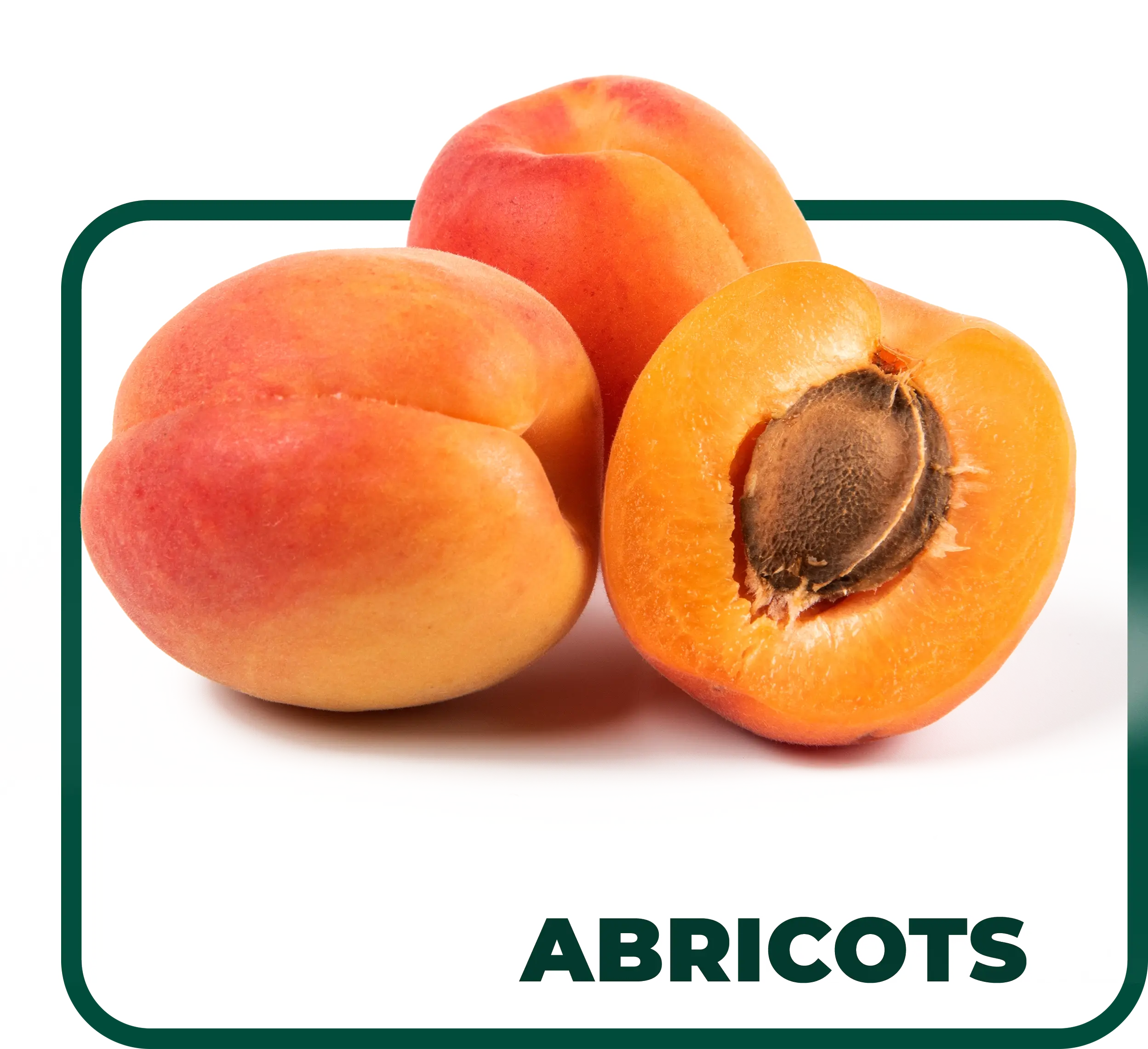
Abricots
Apricots in Egypt are naturally so sweet, with a tangy flavor and bright orange color. These small, round fruits have smooth, golden skin and tender flesh that offers a delicate balance of sweetness and acidity. They are enjoyed fresh, dried, or as part of various culinary creations, including jams, desserts, and salads.

Apricots are packed with vitamins A and C, which are beneficial for maintaining healthy skin, vision, and immune function. Additionally, they offer dietary fiber that supports digestion and fosters a healthy gut. Additionally, apricots contain antioxidants such as beta-carotene and polyphenols, which help protect the body from oxidative stress and inflammation.
Consuming Egyptian apricots can enhance skin health, support digestive function, and boost overall well-being. The substantial vitamin A content enhances vision and skin health, while vitamin C strengthens immune function. The dietary fiber in apricots helps maintain healthy digestion and can aid in weight management. The antioxidants present help reduce inflammation and protect against cellular damage.
Apricot trees are typically planted in late winter or early spring, once the risk of frost has passed. They thrive in well-drained soil with ample sunlight and a temperate climate. The fruit develops during the warmer months and is generally harvested from late spring to early summer, from May to June. Harvesting involves picking the apricots when they are firm and ripe, ensuring the best flavor and quality.
